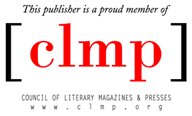The Tricky Little Triolet
Those readers familiar with my own published oeuvre may be aware that I have published a host of triolets—"The Fuck You Triolet" (actually a modified triolet) and "Trio Lay" in Absinthe Literary Review, "Criss Cross" in the Schuylkill Valley Journal, and "Midriff Crisis" in Trinacria. I also have one upcoming in Light Quarterly. Clearly I am fond of triolets. I try to have a triolet in every issue—see Michael Cantor's "Summer Island" in the current issue. But why am I so fond? It's a French form to rival the villanelle for villainousness, all the more so because of its extreme brevity—the little sucker is just eight lines long.
How is its lack of length an issue, I hear you ask? Well, because two of those eight lines are repetends. Yes, L1 pops up again as L4 and L7, and L2 as L8. In addition to this, there is a rhyme scheme. If we designate L1 as A, L2 as B, and a and b as rhymes for those lines, the poem looks like this:
ABaAabAB
Triolets are often written in iambic tetrameter, though that's not a hard and fast rule, and triolet sequences are common. As an example, we published "Turista" by Mike Alexander in a recent issue.
The bones are clear enough, I think. Indeed, once you have put down the bones i.e. chosen your L1 and L2, and placed them in each of the 5 positions they appear, there's not a lot of flesh left to slap on.
It can't be that simple, and indeed, it isn't. Here, culled from a few successful (and many failed) triolets of my own, and from five years of reading hopeful Barefoot Muse trioleteers, are Anna's 8 (of course!) Dos and Don'ts of Triolet Writing:
- It's a rare L1 and L2 that can stand to be repeated in their entirety, without changes of punctuation or homonyms, at both the start and the end of this 8 line poem. It's probably the major reason I reject triolets. The whole point of a repetend is that it becomes weightier on repetition, but with so much repetition, the triolet can end rather flatly.
- On the other hand, don't OVER vary the lines, especially the third iteration. Think of the triolet as a gymnastics floor routine, and the appearances of the repetends as the tumbling passes. The most acrobatic pass is typically the second of the three passes. If the third one is too complex, the gymnast, who is tired by this point, can't always pull it off.
- An end-stopped triolet is a dull triolet. If you can't manage to enjamb across your repetends, at least make sure L5 and L6 show enjambment.
- Avoid metaphor, especially in L1 and L2. Yes, you heard me correctly. You don't really have the syllabic luxury of setting one up properly, not to mention the prestidigitation required to repeat a metaphor while varying the meaning.
- Avoid grand abstractions like Love, Death and suchlike. I'm not one of those who claims abstractions have no place in poetry, but they have to be earned. In a triolet, you need L1 and L2 to work very, very hard. They may have to ground the reader at the beginning of the poem, and still surprise them at the end. Abstractions will make this dual role difficult.
- Make your title work. A strong title can get your reader grounded right off so that L1 and L2 can start the business of actual poetry. Use an epigraph by all means, too!
- Use all the tools of punctuation and emphasis at your disposal—em dashes, colons, semi-colons, question marks, parentheses, italics and capitals. A triolet written using only commas and periods is (probably) a dull triolet.
- Don't be surprised if your triolet ends up as light verse, even if you started off writing a tragic love poem. There's often something inherently comic about so much repetition and rhyme.
French Knitting
The triolet's a tricky little thing—
the second line's the hardest to compose.
Like trying to make lace with bits of string,
the triolet's a trick. A little thing
like grammar throws you off and makes you bring
your punctuation toolkit: clever foes,
the triolets. A tricky little thing,
the second line's the hardest to compose.Finally, rules are made to be broken, and I think I've published successful triolets in the Barefoot Muse that have broken all of these rules at some point! Here's a list of previous TBM triolets not otherwise mentioned above, so you can see for yourself.
- "One Night to Spare" by Johnny Longfellow
- "At the Funeral" by Lesley Doyle
- "Ruminations on Answering Her Telephone Personal" by Dan Simpson
- "Sleepless Love Triolet" by Bruce Niedt
- "Empty Confessional" by Kate Bernadette Benedict
- "Polar Bear" by Jill Williams
- "The Mistress" by Anna Evans
Anna Evans' poems have appeared in the Harvard Review, Atlanta Review, Rattle, and 32 Poems, and she was a finalist for the Howard Nemerov Sonnet Award in both 2005 and 2007. She gained her MFA from Bennington College, and is the Editor of The Raintown Review and of the Barefoot Muse. Her chapbooks Swimming and Selected Sonnets are available from Maverick Duck Press.

